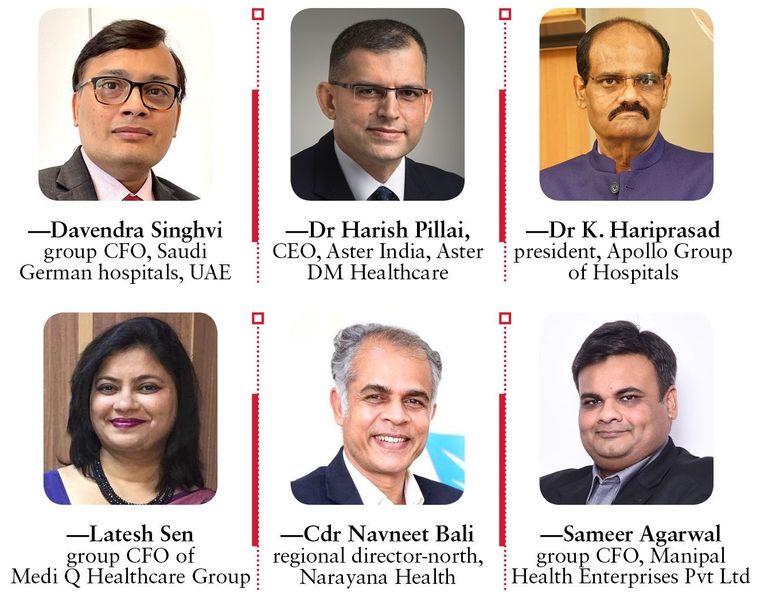At a time when the world is still reeling from the crisis unleashed by Covid-19, how are our health care institutions coping? How are they catering to a growing number of Covid-19 patients while adhering to changing norms? And, how are they still providing affordable and quality health care while ensuring revenues are not hit?
These questions were addressed at the webinar 'Sustaining quality and affordable health care in the post-Covid world,' conducted by THE WEEK andMedi Q Healthcare Group. On the panel were Latesh Sen, group CFO, Medi Q Healthcare Group, a Dubai-based company that provides organisations with comprehensive health care advisory services globally; Dr Kovelamudi Hariprasad, president, Apollo Group of Hospitals; Dr Harish Pillai, CEO, Aster India, Aster DM Healthcare; Davendra Singhvi, group CFO, Saudi German hospitals in the UAE; Sameer Agarwal, group CFO, Manipal Health Enterprises; and Cdr Navneet Bali, director, northern region, Narayana Health.
Hariprasad said that as the virus underwent changes, their understanding of it improved. "A study in our hospital found that among vaccinated health care workers, the number of people who needed hospitalisation after turning positive was less than one per cent and there was no mortality in these patients. Vaccines did work and helped health care workers attend to patients well," he said.
Pillai compared the health care ecosystem between the UAE and the India during the pandemic and said that the health insurance in the Dubai market works to its advantage. Talking about investment opportunities in the Middle East health care market, Singhvi said that visa and investment regulations have been relaxed by the UAE government and the medical tourism scope has increased in the country. "Friendly relations with its neighbours, an ageing population and the increase in lifestyle diseases will contribute towards a tremendous growth of health care in the Middle East in the coming years post-Covid," he said.
According to Sen, India is still behind in adopting scientific cost management, and the immediate step is to devise strategies to keep the cost of care under control and immune to changing situations.
At Narayana Health, Bali said they made it their mission to provide affordable health care to all during the pandemic, while not compromising on quality. "We need to make our systems, processes and people more efficient and productive," he said. "Narayana Health was in talks with large vendors to bring the cost down."
Agarwal's Manipal hospitals used technology to their benefit to make sure patients did not suffer. "Manipal also led the way in transparency between the hospital and patients," he said, emphasising its importance at a time like this.


